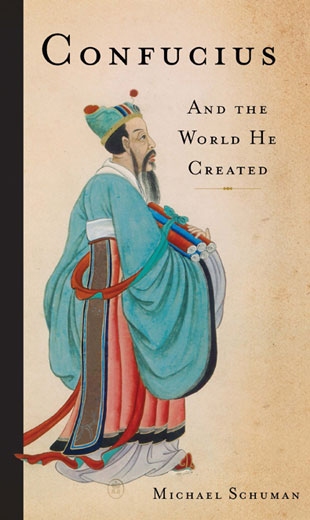"Some see the whole idea that Confucius has become irrelevant as a form of cultural imperialism, something beaten into the minds of Asians and non-Asians alike by centuries of Western dominance of global political and social discourse. If the ideas of Western philosophers, such as Aristotle or Kant, are still considered useful today, why not Confucius's? The only reason we believe otherwise, asserts Li-hsiang Lisa Rosenlee, a Taiwan-born philosophy professor at the University of Hawaii, is because of a global bias against non-Western modes of thought or traditions. 'The point for me is that this sort of disparity in the treatment of Western and non-Western philosophers itself is indicative of the colonial attitude that sees the non-Western world as victims bound to their useless traditions waiting for the West to propel them into modernity,' Rosenlee said in an email.
"Modern history tells us there is no good reason for East Asians to feel that way. Confucian societies have been arguably the most successful in the world since World War II. South Korea, China, and other East Asian countries have registered the highest economic growth rates in history, wiping out centuries of poverty in a few decades and giving them new clout in the global economy. Confucian values such as thrift and a devotion to hard work have gotten the credit. East Asian countries have benefited from exceptionally strong governance compared to most developing nations, owing in part to a predilection among the most talented to seek public service — a preference inspired by Confucius. East Asian students are flooding into the world's best universities thanks to the obsession for learning that is very much a Confucian legacy. Companies in Confucian societies are ferocious competitors, in part because of Confucian-influenced management and labor practices. What has emerged as a result of East Asian prosperity and stability is an alternative model for a modern society — a Confucian model — that challenges the idea that the best institutions, customs, and ideas come from the West. East Asian politicians and thought-leaders are proudly asserting that copying the West isn't the only method of achieving progress and attaining global influence, and that Western ideals are not necessarily universal and appropriate for all. 'In the world of tomorrow,' Mahbubani told me, 'we're going to move from a mono-civilization of the world, of Western domination, to a multi-civilization, of many successful civilizations."
